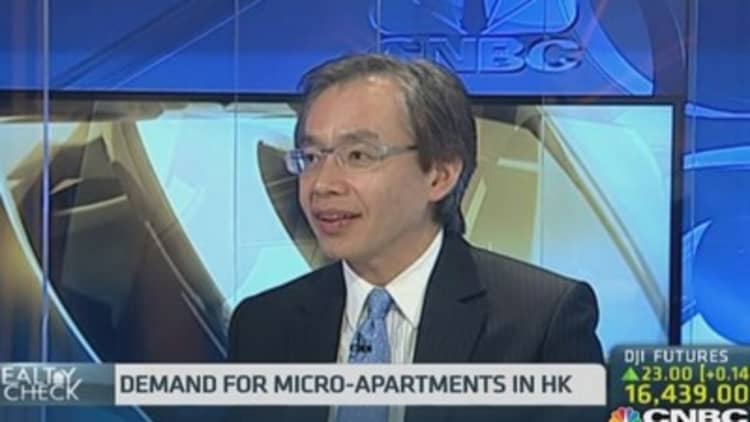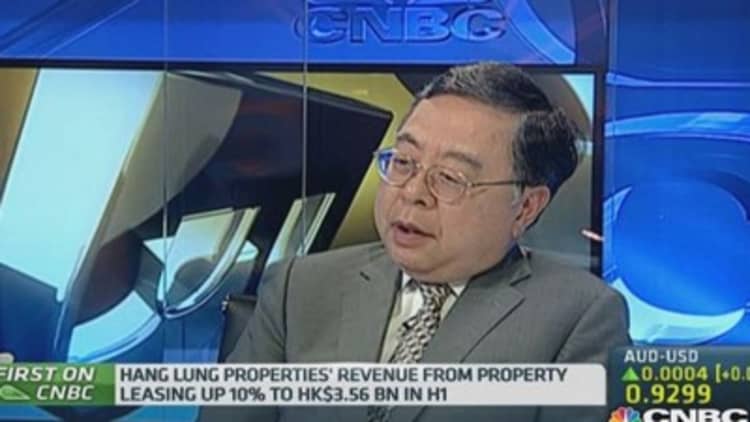Despite a slew of measures aimed at damping down Hong Kong's runaway home prices, some segments of the market are heating up again, potentially spurring further tightening measures.
"House price momentum is again leading to growth in household indebtedness, raising the risk of further government cooling measures," Andrew Lawrence, an analyst at CIMB, said in a note last week.
Read More Shoeboxes support Hong Kong's property sales
He noted that small-unit prices are now 4.5 percent above where the government last introduced cooling measures, although larger properties of above 700 square feet remain below their 2013 peaks.

"Rapidly rising prices are once again putting pressure on potential homebuyers to get into the market as well as encouraging sellers to delay and ask for higher prices," he said. "High home costs are adding to social concerns and should recent capital inflows end up on bank balance sheets, lower mortgage rates could add further momentum to the market."
Read More Hong Kong's housing market is 'least affordable': survey
Hong Kong's home prices have more than doubled since 2008, driven higher by a flood of cheap money from developed markets' central banks in the wake of the global financial crisis.
The special administrative region's property market has become the world's least affordable, according to a Demographia International Housing Affordability Survey, published in January. The survey found average home prices were 14.9 times gross annual median household income, the highest level ever recorded in the survey's 10-year history.
The number of new and existing homes sold in July jumped to 7,792, after remaining below 6,000 a month for the past year, according to government data.
Read More What London can learn from Hong Kong's property market
The increased activity appears to be driven by "optimistic homebuyers" seeking out seemingly affordable primary launches amid limited secondary market supply and relatively low overall transaction volumes, Lawrence said. He noted that data from Inland Revenue's Buyers Stamp duty receipts suggests foreign buyers and investors buying through companies account for only 4 percent of transactions over the past two months.

To be sure, not everyone expects the rising home prices will spur the government into further action.
"The government will find it difficult to impose more demand-side curbs this time, as the recovery is mainly driven by end-user demand and the government has been promoting home ownership," Citigroup said in a recent note. "The government has limited options to control demand without hurting end-users."
Read More Sky may not be falling on Hong Kong property
The government's official price index hit its all-time high of 249.80 in June, with small and medium-sized units rising the most over the past six months, it noted.
The bank believes speeding up pre-sale consents -- or sales during the period before a project's estimated completion time -- would help to keep prices in check. It noted most developers are still getting their presale consents 12-24 months before estimated completion although the government allows up to 30 months.
"If more primary units are approved for sale in this half, we believe it would effectively slow the recent home price recovery," Citigroup said.
—By CNBC.Com's Leslie Shaffer; Follow her on Twitter @LeslieShaffer1

